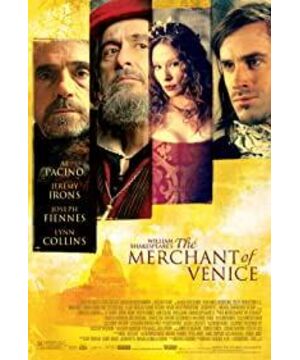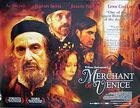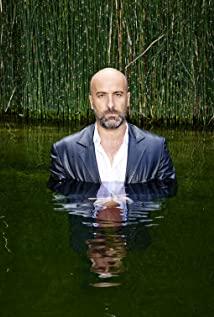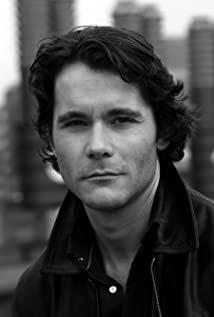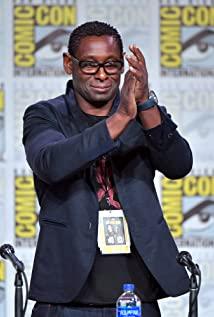The theme of the play is to celebrate benevolence, friendship and love, and it also reflects the contradiction between the commercial bourgeoisie and loan sharks in the early capitalist period, and expresses the author's humanistic thoughts on issues such as money, law and religion in bourgeois society. An important literary achievement of the play is the typical image of Sherlock, a mercenary and ruthless loan shark.
To help his friend Bassanio, the Venetian merchant Antonio borrowed a loan shark from Shylock, a Jew, and wrote a contract that he would cut a pound of flesh from his body if he did not repay the loan on time. Bassanio's marriage proposal was successful, but Antonio couldn't repay the money because the ship was all wrecked, and Sherlock took it to court...
The movie will definitely not cut that pound of meat at the end, otherwise it would go against the main theme of the whole society, but The plot of the courtroom is undoubtedly the climax and highlight of the whole film, reflecting the historical background and cultural characteristics of the time.
Sherlock in the movie may be the representative of capitalist usury, representing the image of a miserable miser, and when Antonio asked him to borrow money, he did not want several times the interest, but a pound of meat, when I saw this scene At the time, I only felt the deep hatred and revenge in Sherlock's heart. A Jew who grew up in a Christian environment, in the capitalism of 16th century Europe, in Venice, the most powerful and free city, their contempt and prejudice against Jews can be seen everywhere, and they are forced to live in In ancient factories or slums separated by walls, the gates will be locked and guarded by Christians after sunset. Any Jew who leaves the ghetto during the day wears a red hat that identifies them as a "Jew". Jews were forbidden to own property, so they could only lend at usury, lending money out for interest, which was also against Christian law. For the Merchant of Venice they turned a blind eye, but for the zealots of the Jewish hatred religion it was a different story. They would beat, abuse and even deprive Jews of their right to live.
And all kinds of social injustices have long existed for countless Sherlocks. They were greedy, stingy, wealthy, and cold-blooded, but they reflected the ruthlessness of the society at that time and destined Sherlock's tragic life. It also created the perversion of his character and the distortion of his life. When the enemy came to borrow money, he would rather ask for a pound of meat instead of several times the interest, because he longed for a chance to counterattack.
Sherlock in the courtroom was calm and eloquent. Even in the face of accusations from everyone, he was still like a hero in ancient Rome. He was calm and confident in the face of abuse from everyone. Perhaps the oppression and humiliation of race made him feel that he had had enough. When Portia's wisdom successfully saved Antonio, Sherlock showed his greedy nature again, trying to get back the interest, and then lost half of his property. There, the only daughter eloped with her property and her lover. She wanted to harm the enemy but lost half of her property in the end. Sherlock is an out-and-out tragic figure. It is also the main line in the movie.
Antonio is a very friendly person. For the sake of his friends, he stabs at both sides, and he has no regrets in court. He is a person with a very humanistic plot. Represents a smart woman in the new era. She is independent, thoughtful, wise, and knows how to solve problems. Relatively speaking, I am not very optimistic about Bassanio. Although I attach great importance to friendship, my will is not firm enough, and I do not care about the importance of things. , fortunately he met a very good wife.
The three boxes in the movie should also be what the movie itself wants to convey. You can get what you expect.
A very good movie, almost missed because of the name, it was released in 2005, it is worth watching.
View more about The Merchant of Venice reviews


